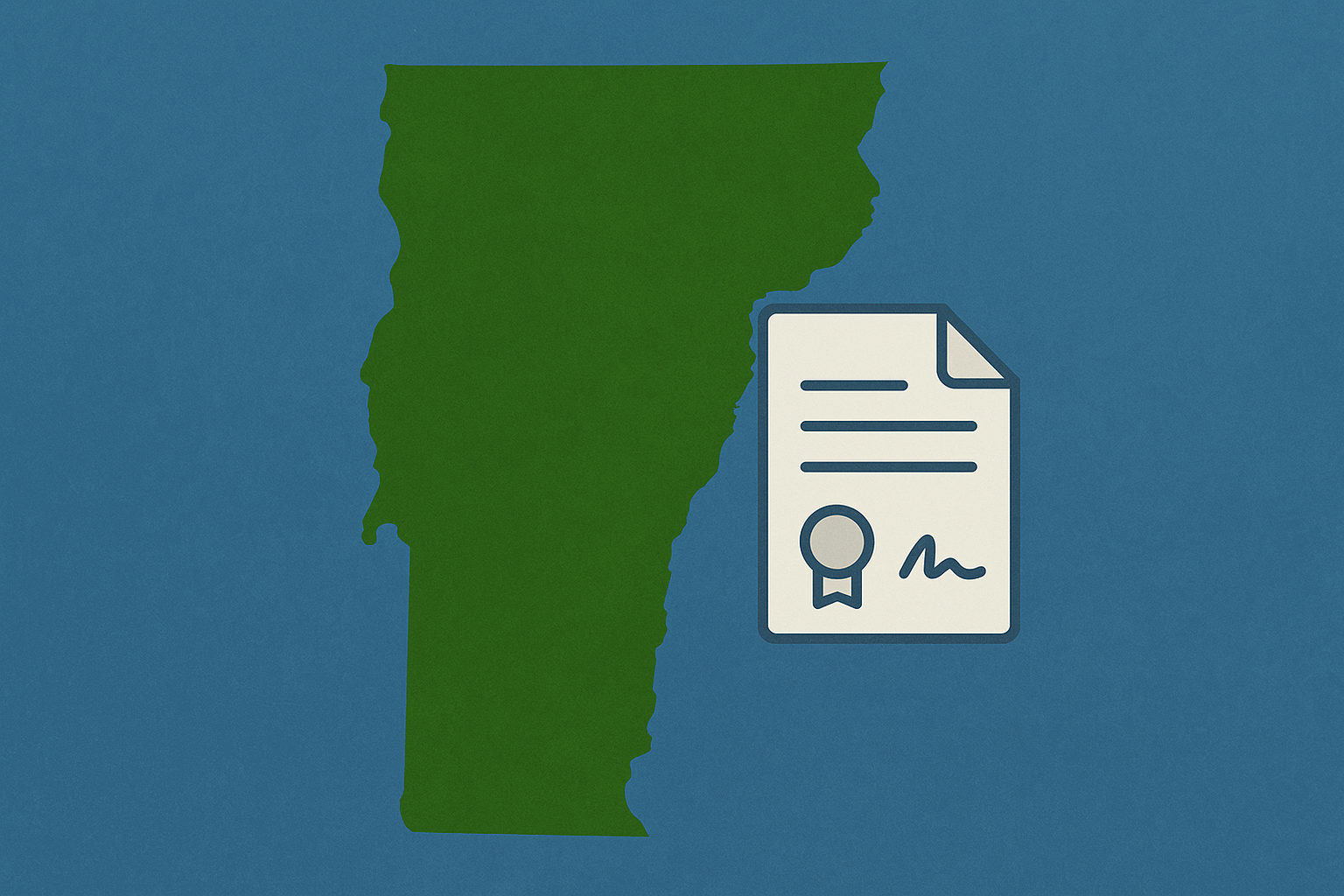Vermont Bill of Sale Form
A Vermont Bill of Sale is an official document that proves the sale of personal property. It details the transfer of ownership between a buyer and seller in Vermont.
Vermont Bill of Sale Types
As-Is
Vehicle
Why Do You Need a Vermont Bill of Sale?
A Bill of Sale is essential for the following reasons:
- It serves as a paper trail
Although a Bill of Sale is not always required for all transactions of personal property. It is recommended as it serves as a clear paper trail.
- It is useful for a claim purpose
When purchasing motor vehicles, a Vermont Bill of Sale is essential. The buyer needs it to transfer the vehicle’s title. It's also used to register the vehicle with the Vermont Department of Motor Vehicles (DMV).
- It contains useful information
A Bill of Sale provides important details needed to carry out the transfer process. These include:
- Odometer reading (applies to vehicles under 10 years)
- Vehicle identification number (VIN)
- The agreed sale price.
- It is a state requirement
In Vermont, the law demands documented contracts for the sale of any goods worth $500 or more. This legal agreement is what makes the sale enforceable.
However, it is not a requirement to notarize a standard Vermont Bill of Sale.
Common Uses of a Vermont Bill of Sale
The Vermont Bill of Sale Form is useful for a variety of reasons:
- It documents the transfer of title and liabilities from seller to buyer.
- It becomes vital evidence for the buyer, serving as a symbol of their new ownership. This may be useful for insurance, registration, and future sales.
- A Vermont Bill of Sale Form helps prevent property issues when done correctly and according to state requirements.

No. A Vermont Bill of Sale Form is not legally required for all sales of personal property. However, it is advised to have one as it serves as proof of ownership. For motor vehicles, the buyers must transfer the title and register with the Vermont DMV.
For a Vermont Bill of Sale Form, details such as the full names of both parties may be needed. The sale date, identification number and vehicle details are also included.
Notarizing a Bill of Sale in Vermont isn’t necessary. However, having notary validation can be an added legal assurance and authentication. This can be useful for averting future issues. Notarization is also not required by the Vermont DMV to transfer a vehicle title.
A vehicle buyer will submit the Bill of Sale and other documents to their local Vermont DMV office. This also includes a properly signed title to transfer and register the vehicle. It’s important for every seller to have their own copy. They should submit the "Notice of Sale" to the DMV.